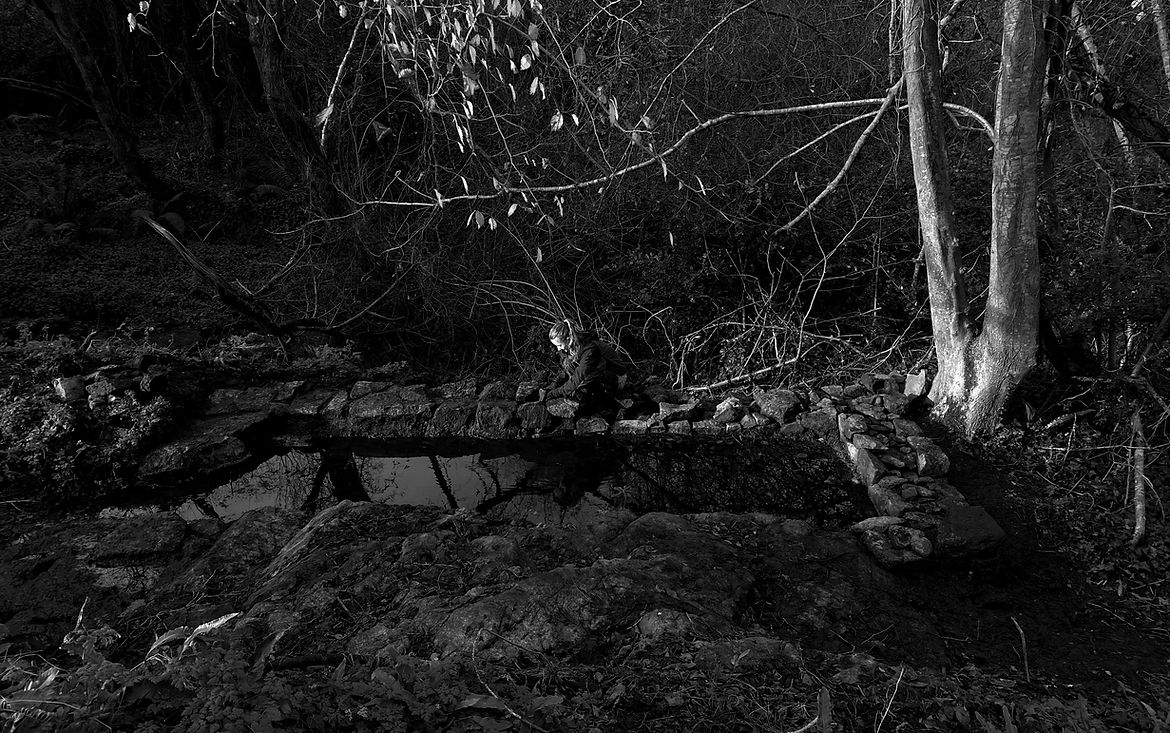Llavoir
Date: 2024
Material: Granite
Location: Camlez, Brittany, France
Program: Bathing Pond
Collaborators: Timothée Ryan
Earth and stone are the sole ingredients of this project.
This work is an intent, a gesture, an ethos. It is a collaboration between Timothée Ryan and Laura Stargala - together they chose a site within the woods in Camlez, France to build a bathing pond with locally sourced earth and stone.
The new bathing pond is placed in line with a series of historic washing pools, called lavoir in French. These pools within the woods were once used by locals to wash laundry by hand. A stream passes along side the series of pools within the valley. The water runs through the pool from a llavoir on a higher topography and runs past into a larger llavoir lower in the valley. A bedrock of granite emerges from the ground next to the ponds.
A raised mound, called a talu in French, also follows along side as a footpath. This is a common form of land manipulation in the region which can also be seen along roads and agricultural fields. A talu is usually composed of stones that were removed from nearby fields to clear for plowing and planting crops. Earth is also mixed in to create a solid mound, which is then overgrown in vegetation. Native plants, such as hart’s tongue fern (Asplenium Scolopendrium) and fox glove (Digitalis) grow from the banks near the ponds.
Although a simple gesture, this new addition of a third lavoir embodies many of the qualities that the duo finds meaningful. By building with available materials, the pools remain a hyper-proximal construction, responding to the immediate context and agricultural histories.

Lavoir Adjacent to Bedrock (Photo Credit: Laura Stargala)
Earth and stone are the sole ingredients of this project.

Stream (Photo Credit: Laura Stargala)

Three lavoir along stream (Drawing Credit: Laura Stargala)

Construction of new lavoir (Photo Credit: Timothée Ryan)

Three lavoir along stream (Drawing Credit: Laura Stargala)
By building with available materials, the pools remain a hyper-proximal construction, responding to the immediate context and agricultural histories.

Bedrock along new lavoir (Photo Credit: Timothée Ryan)


New lavoir emerging from bedrock (Drawing Credit: Timothée Ryan and Laura Stargala)
Stone sourced from site (Photo Credit: Timothée Ryan)
